第3章 Chapter II(2)
"Yes, and it's lucky that you have a good thick woolly coat over it," replied Captain Osborn, laughing.
"It is 12 o'clock by the sun, sir," said Mackintosh, the first mate, to the captain.
"Then bring me up the latitude, Mr. Mackintosh, while I work out the longitude from the sights which I took this morning. In five minutes, Mr. Seagrave, I shall be ready to prick off over our place on the chart."
"Here are the dogs come up on deck," said William; "I dare say they are as glad of the fine weather as we are. Come here, Romulus! Here, Remus!
- Remus!"
"Well, sir," said Ready, who was standing by them with his quadrant in his hand, "I should like to ask you a question. Those dogs of yours have two very odd names which I never heard before. Who were Romulus and Remus?"
"Romulus and Remus," replied Mr. Seagrave, "were the names of two shepherds, brothers, who in ancient days founded the city of Rome, which eventually became the largest and most celebrated empire in the world. They were the first kings of Rome, and reigned together. History says that Remus affronted Romulus by leaping over a wall he had raised, and Romulus, in his anger, took away his life; but the history of early days is not to be depended upon."
"No, nor the brothers either, it appears," replied Ready; "however, it is the old story - two of a trade can never agree. One sometimes hears of Rome now - is that the same place?"
"Yes," replied William, "it is the remains of the old city."
"Well, one lives and learns," said Ready. "I have learnt something to-day, which everyone will to the last day of his life, if he will only ask questions. I'm an old man, and perhaps don't know much, except in the seafaring way; but I should have known much less if I did not ask for information, and was not ashamed to acknowledge my ignorance; that's the way to learn, Master William."
"Very good advice, Ready, - and, William, I hope you will profit by it," said Mr. Seagrave; "never be ashamed to ask the meaning of what you do not understand."
"I always do, papa. Do I not ask you questions, Ready?"
"Yes, you do, and very clever questions for a boy of your age; and I only wish that I could answer them better than I can sometimes."
"I should like to go down now, my dear," said Mrs. Seagrave; "perhaps Ready will see the baby down safe."
"That I will, ma'am," said Ready, putting his quadrant on the capstan:
"now, Juno, give me the child, and go down first; - backwards, you stupid girl! how often do I tell you that? Some day or another you will come down with a run."
"And break my head," said Juno.
"Yes, or break your arm; and then who is to hold the child?"
As soon as they were all down in the cabin, the captain and Mr. Seagrave marked the position of the vessel on the chart, and found that they were one hundred and thirty miles from the Cape of Good Hope.
"If the wind holds, we shall be in to-morrow," said Mr. Seagrave to his wife. "Juno, perhaps you may see your father and mother."
Poor Juno shook her head, and a tear or two stole down her dark cheek.
With a mournful face she told them, that her father and mother belonged to a Dutch boor, who had gone with them many miles into the interior: she had been parted from them when quite a little child, and had been left at Cape Town.